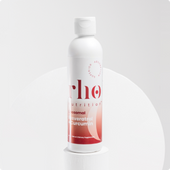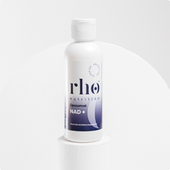Feeling constantly drained and sluggish? You're not alone. Low energy can impact everything from work performance to quality of life.
While adequate sleep and regular exercise are fundamental, certain vitamins and minerals can support your body's energy production systems. In this comprehensive guide, we'll explore the best vitamins for energy and how they can help you overcome fatigue naturally.
Why You Might Be Feeling Low on Energy
Before exploring solutions, it's important to understand what is causing your energy slump.
Common causes of fatigue
-
Nutritional deficiencies: Lacking essential vitamins and minerals can directly impact your energy levels
-
Poor sleep quality: Even getting 8 hours doesn't guarantee restorative sleep
-
Chronic stress: Constantly elevated stress hormones drain energy reserves
-
Dehydration: Even mild dehydration can cause fatigue
-
Medical conditions: Thyroid disorders, anemia, and other health issues commonly cause fatigue
-
Overtraining or undertraining: Both extremes can leave you feeling exhausted
If your fatigue is severe or persistent, consult with a healthcare professional to rule out underlying medical conditions.
For many people, however, nutritional support can make a significant difference in daily energy levels.
The Best Vitamins for Energy
Now that we understand what might be causing your fatigue, let's explore the specific vitamins and minerals that can help restore your energy levels.
These nutrients have been scientifically shown to combat fatigue and boost vitality when properly supplemented.
Vitamin B12
B12 stands out as perhaps the most renowned vitamin for energy production.
Vitamin B12 can support cellular energy production. It helps convert the food you eat into glucose, which your body uses as fuel. B12 is also essential for red blood cell formation, which transports oxygen throughout your body.
Deficiency symptoms
A B12 deficiency often manifests as profound fatigue, weakness, and even brain fog. Since your body doesn't produce this vitamin naturally, adequate intake through diet or supplementation is necessary.
Symptoms of B12 deficiency include:
-
Extreme fatigue
-
Weakness
-
Numbness or tingling in hands and feet
-
Balance problems
-
Memory issues
-
Mood changes
Food sources and supplements
B12 is naturally found in animal products, making deficiency common among vegetarians and vegans. Rich sources include:
-
Beef liver and clams (highest concentrations)
-
Fish, meat, poultry, eggs, and dairy
-
Fortified plant milks and breakfast cereals
For those struggling with absorption or dietary restrictions, supplements can effectively correct deficiencies. B12 supplementation comes in various forms, including oral tablets, sublingual (under the tongue) options, and injections for severe cases.
Iron
Iron deficiency is one of the most common nutritional deficiencies worldwide and a leading cause of fatigue, especially in women.
Iron is essential for producing hemoglobin, the protein in red blood cells responsible for carrying oxygen throughout your body. Without sufficient oxygen delivery to cells and tissues, energy production falters, leading to the classic symptoms of iron-deficiency anemia: fatigue, weakness, and shortness of breath.
Who is at risk for low iron
Certain populations are particularly vulnerable to iron deficiency:
-
Menstruating women due to monthly blood loss
-
Pregnant women who need increased iron
-
Vegetarians and vegans (plant-based iron is less bioavailable)
-
Endurance athletes who lose iron through sweat and mechanical hemolysis
-
People with digestive disorders that affect nutrient absorption
Food sources and supplementation tips
-
Red meat, organ meats, and shellfish (heme iron sources, most easily absorbed)
-
Beans, lentils, spinach, and fortified cereals (non-heme iron sources)
To enhance iron absorption:
-
Consume vitamin C alongside iron-rich foods
-
Avoid calcium supplements and coffee/tea at mealtimes, which can inhibit absorption
-
Cook in cast-iron pans to increase the iron content of your meals
If supplementing, start with low doses to avoid digestive discomfort, and always consult your healthcare provider, as excess iron can be harmful.
Vitamin D
Another nutrient that significantly impacts energy levels is vitamin D. This sunshine vitamin affects multiple systems in the body that contribute to your daily energy levels.
Often called the "sunshine vitamin," vitamin D has received increasing attention for its role in overall health, including energy levels.
Research suggests a strong correlation between vitamin D deficiency and fatigue. While the exact mechanisms aren't fully understood, vitamin D receptors are found in brain tissue involved in sleep regulation and energy production. Low vitamin D has been linked to poor sleep quality, which naturally leads to daytime fatigue.
Studies have shown that correcting vitamin D deficiency often results in significant improvements in perceived fatigue and energy levels.
How to get enough (sunlight, food, supplements)
Your body naturally produces vitamin D when your skin is exposed to sunlight, but several factors can limit this production:
-
Living in northern climates
-
Limited outdoor time
-
Darker skin tones
-
Sunscreen use
-
Winter months with less UVB radiation
Food sources are limited but include:
-
Fatty fish like salmon and mackerel
-
Egg yolks
-
Fortified milk, juice, and cereals
The recommended daily allowance varies by age and other factors, so consulting with a healthcare provider for appropriate dosing is advisable.
Magnesium
Magnesium is involved in over 300 enzymatic reactions in the body, many directly related to energy production.
Supports muscle and nerve function
Magnesium supports muscle contraction and relaxation. Deficiency can lead to muscle cramps, weakness, and increased perception of physical exertion, all contributing to feelings of fatigue.
Helps with restful sleep and fatigue reduction
Magnesium has calming properties that support healthy sleep, helping you achieve more restful sleep. It also promotes relaxation and may help reduce stress, both important for maintaining healthy energy levels.
-
Dark leafy greens
-
Nuts and seeds (especially pumpkin seeds)
-
Whole grains
-
Avocados
-
Dark chocolate
Magnesium supplements come in various forms, with magnesium glycinate or citrate generally being better tolerated and absorbed than magnesium oxide.
CoQ10
Coenzyme Q10 (CoQ10) is a naturally occurring antioxidant that your body produces and uses for basic cell function.
Antioxidant properties and mitochondrial energy production
CoQ10 supports producing energy in your cells' mitochondria – often called the "powerhouses" of cells. It helps convert food into ATP, the energy currency of your body. As we age, natural CoQ10 production decreases, potentially affecting energy levels.
Unlike vitamins, CoQ10 is not widely available in foods, though small amounts can be found in:
-
Organ meats
-
Fatty fish
-
Whole grains
Supplementation may be particularly beneficial for older adults or those taking statin medications, which can deplete CoQ10 levels.
B-complex Vitamins
While we've highlighted B12 specifically, it's important to understand that it's just one member of a powerful family of nutrients. The entire B vitamin complex works together to support your body's energy systems.
While B12 gets much of the attention, the entire B vitamin family plays crucial roles in energy production.
Overview of B1, B2, B3, B6, etc., and how they work together
-
B1 (Thiamine): Helps convert nutrients into energy
-
B2 (Riboflavin): Essential for cellular energy production and growth
-
B3 (Niacin): Supports enzymes that help with energy transfer reactions
-
B5 (Pantothenic acid): Critical for synthesizing energy from carbohydrates, proteins, and fats
-
B6 (Pyridoxine): Helps metabolize proteins and supports red blood cell production
-
B7 (Biotin): Assists in metabolizing fats, carbohydrates, and proteins
-
B9 (Folate): Works with B12 to form red blood cells and convert carbohydrates into energy
B vitamins often work synergistically, which is why many supplements contain the entire B complex rather than individual B vitamins.
Food sources rich in B vitamins include:
-
Whole grains
-
Meat, fish, and poultry
-
Eggs and dairy
-
Legumes
-
Leafy greens
-
Nutritional yeast
Should You Take a Supplement or Get Vitamins from Food?
With all these energy-boosting nutrients identified, an important question arises: should you rely on supplements or focus on obtaining these vitamins from food sources?
Pros and cons of supplements
Pros:
-
Convenient and precise dosing
-
Can address specific deficiencies
-
May be necessary for certain populations (e.g., vegans needing B12)
Cons:
-
May not include cofactors found in whole foods
-
Potential for interactions with medications
-
Quality and absorption vary between products
-
Can create a false sense of security about overall nutrition
Whole foods that naturally support energy
Whenever possible, prioritize nutrient-dense whole foods as your primary source of vitamins and minerals:
-
For B vitamins: Lean meats, eggs, legumes, seeds, and leafy greens
-
For iron: Red meat, spinach, lentils, and fortified cereals
-
For magnesium: Almonds, spinach, cashews, black beans, and edamame
-
For vitamin D: Fatty fish, egg yolks, and mushrooms (plus sunshine!)
A balanced diet rich in colorful fruits and vegetables, lean proteins, healthy fats, and complex carbohydrates provides the full spectrum of nutrients needed for optimal energy production.
Do Liposomal Vitamins Help with Energy?
Liposomal delivery systems encapsulate nutrients in phospholipid layers, potentially improving absorption and bioavailability.
For vitamins related to energy, like B12 and vitamin D, enhanced absorption could theoretically lead to better outcomes.
Research suggests liposomal vitamin C shows improved absorption compared to standard oral forms. Similar benefits may apply to other nutrients, though evidence varies by specific vitamin.
Tips for Choosing the Right Supplement
If you've decided that supplementation is appropriate for your situation, navigating the vast world of vitamin and mineral supplements can be overwhelming.
Here's how to select products that will actually help combat your fatigue.
What to look for on the label
-
Form matters: Look for the most bioavailable forms of vitamins:
-
Methylcobalamin or adenosylcobalamin for B12
-
Ferrous bisglycinate for iron
-
Vitamin D3 (cholecalciferol) rather than D2
-
Dosage: Ensure appropriate amounts based on your age, sex, and specific needs
-
Additional ingredients: Avoid unnecessary fillers, artificial colors, or allergens
-
Combination products: Consider whether you need a multivitamin or a targeted supplement
Certifications and quality
Quality control varies tremendously in the supplement industry. Look for products that have been third-party tested by organizations like:
-
USP (United States Pharmacopeia)
-
NSF International
-
ConsumerLab
- GMP
These certifications help ensure that what's on the label is actually in the bottle and that the product is free from contaminants.
When to talk to a healthcare provider
Always consult with a healthcare provider before starting supplements, especially if you:
-
Take prescription medications
-
Have chronic health conditions
-
Are pregnant or breastfeeding
-
Experience unusual symptoms
-
Are considering high-dose supplementation
Your healthcare provider can order blood tests to identify specific deficiencies and recommend appropriate supplementation strategies.
Bottom Line
While the vitamins and minerals discussed here can significantly impact energy levels, they work best as part of a holistic approach to health. The best vitamins for energy won't compensate for chronic sleep deprivation, extreme stress, or a highly processed diet.
For optimal energy, combine targeted supplementation (where needed) with:
-
Regular physical activity
-
Adequate hydration
-
Stress management techniques
-
Consistent sleep habits
-
A diet rich in whole, unprocessed foods
Remember that sudden or persistent fatigue can signal underlying health conditions. If you're experiencing ongoing exhaustion despite making lifestyle changes and addressing potential nutritional deficiencies, consult with a healthcare provider to rule out medical causes.
The right vitamins and minerals can give your body the tools it needs to produce energy efficiently, helping you combat fatigue and regain vitality for the activities you love.













Leave a comment